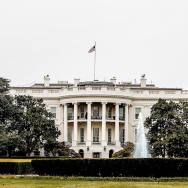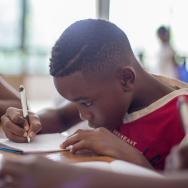Many Americans are concerned about the effects of the coronavirus outbreak on children, and there is broad support for summer school and tutoring programs to help children catch up, according to a new study from the University of Chicago Harris School of Public Policy.
Conducted jointly with the Associated Press-NORC Center for Public Affairs Research, the study finds that 42% percent of parents are very concerned their children are falling behind both academically and socially, and majorities of those without school-age children say the same about the nation’s youth.
With such widespread worry, 81% of Americans support government-funded summer school or tutoring to help students who have fallen behind, including 76% of Republicans and 90% of Democrats.
Thinking about the factors that lead children to success, two factors top the list: 83% of Americans point to hard work, and 82% say the amount of time children spend with a parent is very important. More than 8 in 10 Republicans, Democrats, parents and those without school-age children view parental time with children as a critical for their long-term success.
“The poll shows there is a public consensus that it is critical for parents to spend time with their children,” said Prof. Ariel Kalil, a leading developmental psychologist and co-director of the Behavioral Insights and Parenting Lab at the University of Chicago Harris School of Public Policy. “Americans believe hard work and the amount of time children spend with their parents are key predictors of a child’s future success, and that both are more important than a variety of other factors.”
There is also broad public support for government-funded paid parental leave: 66% percent of Americans support paid family leave, including 79% of Democrats and 53% Republicans.
“Paid parental leave is a very popular policy as it is clear that many Americans realize the value of parents being able to take time off work to be with their children,” said Prof. Emeritus Susan Mayer, a leading expert on intergenerational poverty and co-director of the Behavioral Insights and Parenting Lab.
In addition to paid parental leave, two-thirds of Americans also support making preschool available to all 4-year-olds in the United States. Universal preschool receives support across the political spectrum with 83% of Democrats and 54% of Republicans in favor of the policy.
In order to return safely to in-person learning, most Americans agree common preventive measures are important. Majorities of Americans think that wearing face masks, requiring frequent testing, limiting class sizes, and requiring teachers to be vaccinated are important for a safe return to in-person instruction. And 62% say wearing masks is essential to returning to in-person instruction.
Less than 4 in 10 Americans are very or extremely worried about in-person schooling leading to additional spread of the coronavirus, though about another third are somewhat concerned.
“Americans appear more concerned now about children falling behind than they are about children spreading the coronavirus if they return to schools,” said Trevor Tompson, director of the AP-NORC Center. “At the same time, the public recognizes the value of recommended preventive measures that can make in-person learning safer.”
Among the key findings from the report:
- While both those with and without school-age children agree on the other safety measures, just 33% of parents say requiring all students and staff to be tested regularly for COVID-19 is essential to reopening, compared to 44% of non-parents.
- Twenty-two percent of parents are very concerned about their ability to handle other responsibilities due to the pandemic, compared to 41% who said the same in July 2020.
- Sixty-nine percent of Americans support a government provided laptop or tablet computers to help students complete their schoolwork at home.
- Fifty-one percent of parents support sending cash payments to parents, compared to 41% of those without school-age children.
- Fifty-two percent of Americans say that the use of technology to teach children has made the quality of education better, but 50% also say it has increased inequalities in education.
- Just 24% of white adults say race or ethnicity is key to children’s success, compared to 43% of Hispanic and 64% of Black adults.
Data were collected using the AmeriSpeak Omnibus®, a monthly multi-client survey using NORC’s probability-based panel designed to be representative of the U.S. household population. Interviews for this survey were conducted between Feb. 25 and March 1, 2021, with adults age 18 and over representing the 50 states and the District of Columbia.
Panel members were randomly drawn from AmeriSpeak, and 1,076 completed the survey—1,019 via the web and 57 via telephone. Interviews were conducted in English. The final stage completion rate is 23.8%, the weighted household panel response rate is 19.5%, and the weighted household panel retention rate is 75.0%, for a cumulative response rate of 3.5%. The overall margin of sampling error is +/- 4.1 percentage points at the 95% confidence level, including the design effect. The margin of sampling error may be higher for subgroups.
The overall margin of sampling error for the 273 completed interviews with parents of school-age children is +/- 7.8 percentage points at the 95 percent confidence level including the design effect.
—For more results from the survey, visit the AP-NORC website.

